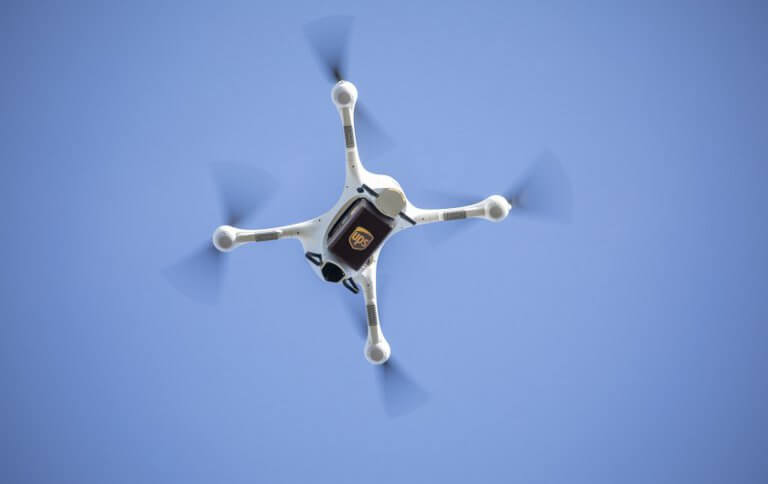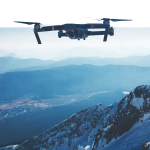UPS launches first regular drone deliveries in US

United Parcel Service (UPS) has launched its first regular commercial drone service, transporting medical samples across a hospital system in North Carolina.
The announcement comes off the back of a partnership with autonomous drone startup Matternet and will augment the ground service currently in operation between the WakeMed Health & Hospitals network in Raleigh.
The short journeys promise to save time for on-demand and same-day deliveries, according to UPS, and “the ability to avoid roadway delays, increase medical delivery efficiency, lower costs and improve the patient experience with potentially life-saving benefits.”
Deliveries will be made by Matternet’s M2 quadcopter, which will carry medical payloads— such as a blood sample— of up to 5 Ibs. over distances of 12.5 miles. Loaded at a WakeMed facility, the drones will follow a predetermined flight path, monitored by a remote operator, before landing at a fixed landing pad at the main hospital.
Following test flights in August last year, WakeMed ENT physician and medical director of WakeMed Innovations, Stuart Ginn, MD, said: “This powerful technology has the potential to achieve transformative improvements in health and healthcare delivery.
“Developing healthcare-related uses for drones will improve the speed of deliveries, enhance access to care and create healthier communities.”
The project forms part of the Federal Aviation Administration’s (FAA’s) three-year Unmanned Aircraft System Integration Pilot Program (IPP), which aims to learn how new technology can be safely and usefully integrated into day-to-day activities through practical trials between government-private sector partnerships.
With the FAA’s full oversight, the first flight on Tuesday marked the beginning of numerous planned flights by UPS at the WakeMed Raleigh campus.
The delivery and supply-chain multinational also wants to advance the service to other hospitals in the US if successful, which forms part of a wider plan to break into the delivery management of healthcare products at large, where it’s helping to level pressure on profits as online retail leads to more residential deliveries.
“Healthcare and life science logistics is a priority segment for UPS, and the company is building new relationships and technologies to deliver better patient care with streamlined logistics and supply chain,” UPS stated.
Both partners have experience in drone technology for deliveries already; UPS has previously worked with drone maker Zipline in Rwanda to deliver medical supplies to remote rural areas, while Matternet has completed more than 3,000 trips for healthcare systems in Switzerland.
The controlled environment of private campuses, such as those of hospital and universities, represent ideal test grounds for emerging technologies, such as IoT (Internet of Things) and automated vehicle technology.
Just this week, for example, robotics startup Starship Technologies deployed 30 robots at Northern Arizona University to ferry food orders to between Sodexo-affiliated restaurants and some 25,000 students.










